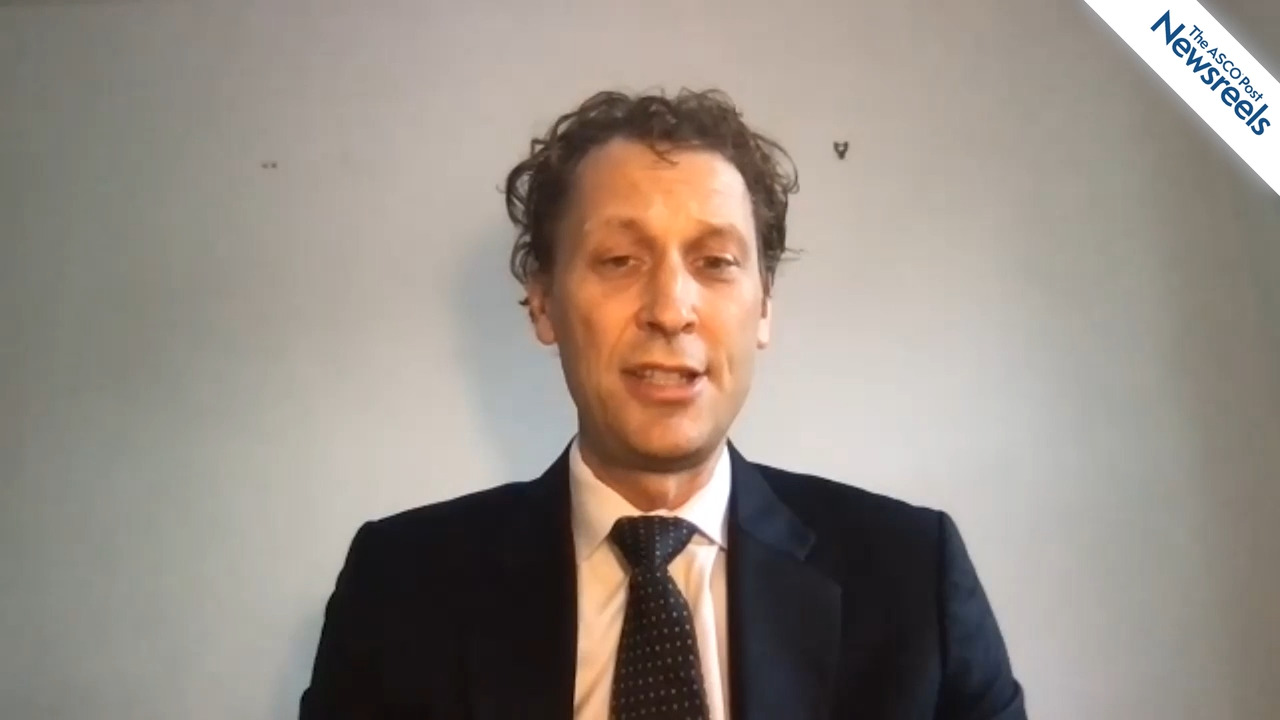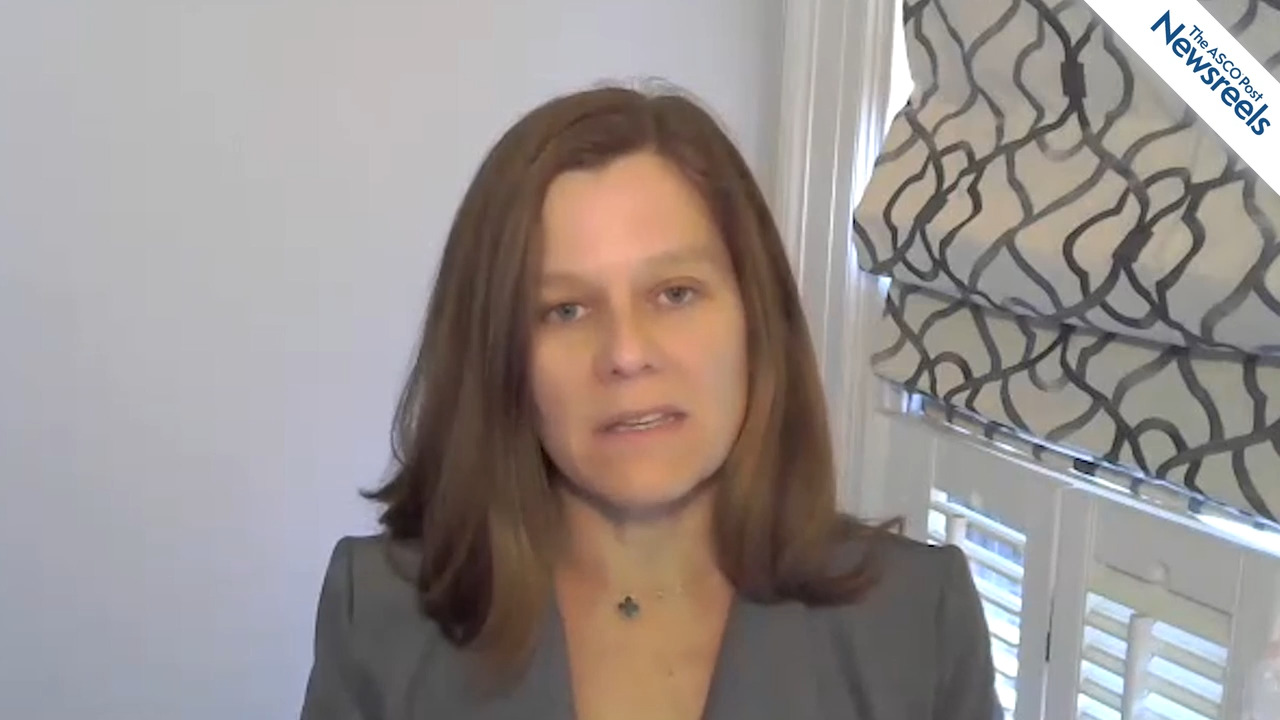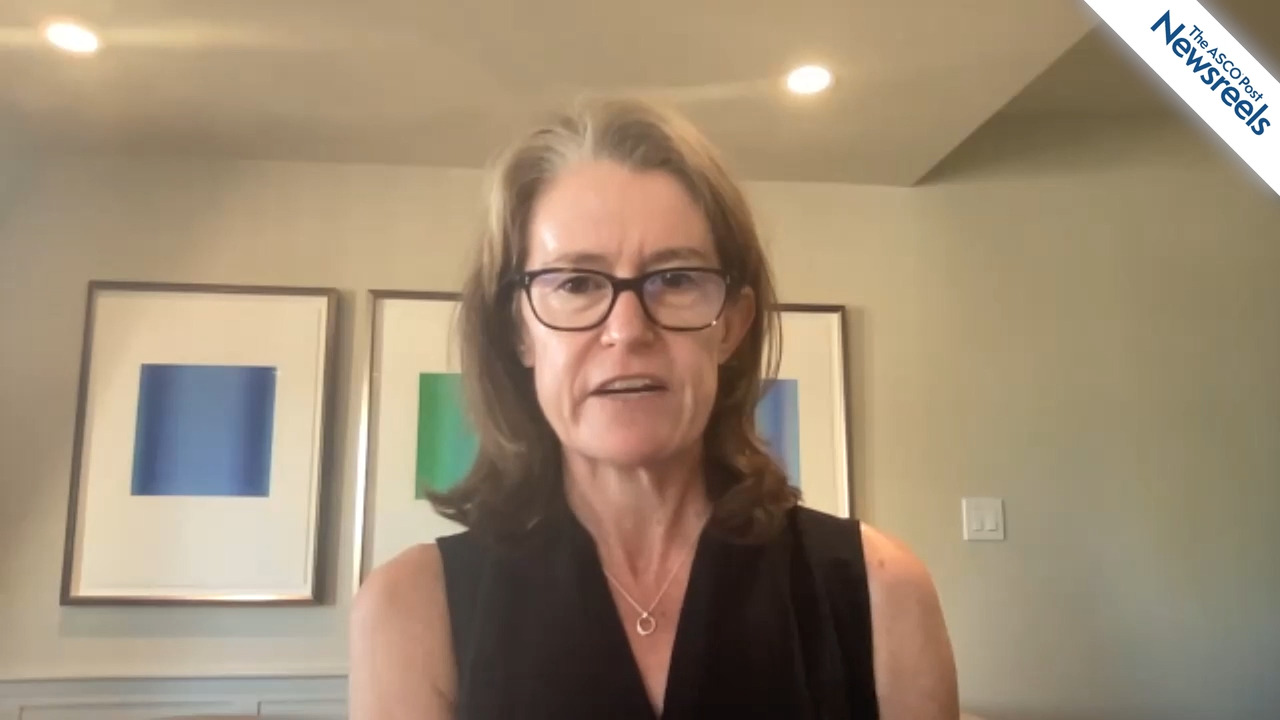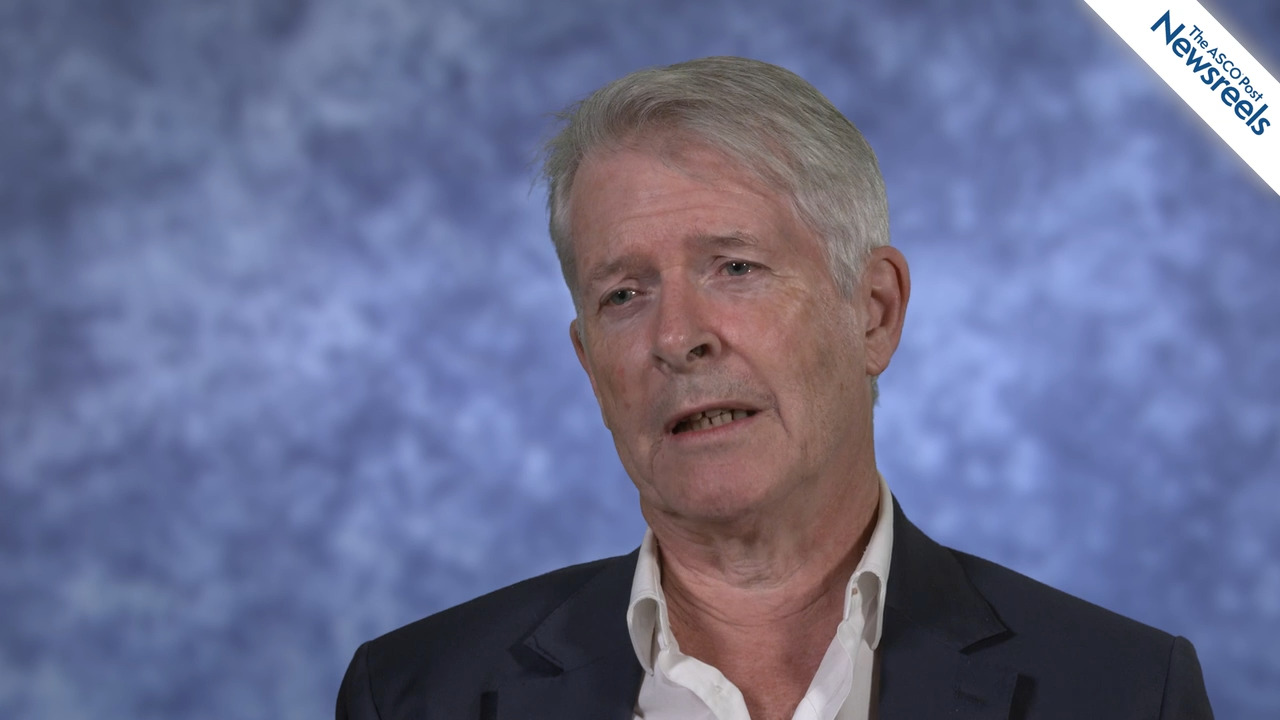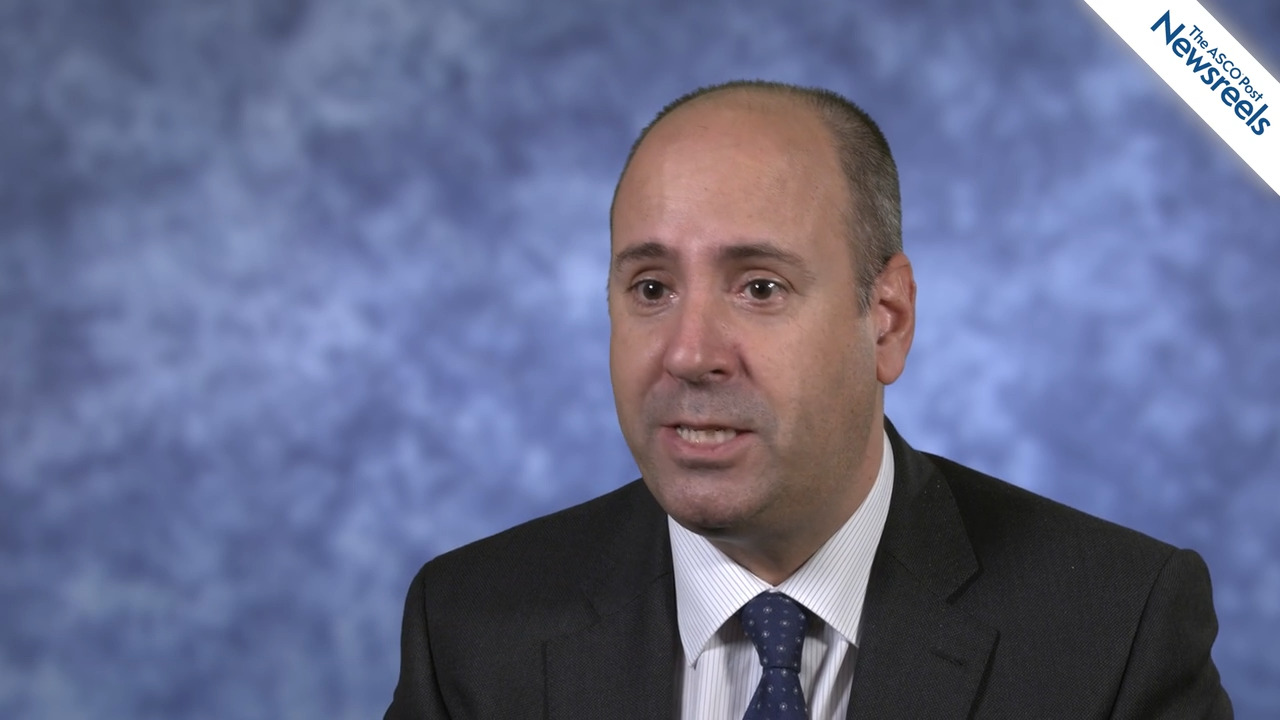François-Clément Bidard, MD, PhD, on Metastatic Breast Cancer: Endocrine Therapy and Palbociclib
2021 San Antonio Breast Cancer Symposium
François-Clément Bidard, MD, PhD, of the Institut Curie, discusses phase III findings of the PADA-1 study, which showed that optimizing endocrine therapy after detecting the ESR1 mutation in patients with hormone receptor–positive, HER2-negative metastatic breast cancer may double their median progression-free survival (Abstract GS3-05).
Related Videos
The ASCO Post Staff
Peter Schmid, MD, PhD, of Barts Cancer Institute, discusses phase III findings from KEYNOTE-522, in which researchers found a generally consistent event-free survival benefit among patients with early-stage high-risk triple-negative breast cancer who were treated with neoadjuvant pembrolizumab plus chemotherapy followed by adjuvant pembrolizumab (Abstract GS1-01).
The ASCO Post Staff
Ann H. Partridge, MD, MPH, of Dana-Farber Cancer Institute, discusses what she considers to be the most notable presentations at the 2021 San Antonio Breast Cancer Symposium. They include the focus on early-stage disease, especially in the TEXT/SOFT, RxPonder, and KEYNOTE-522 trials, as well as abstracts from the Early Breast Cancer Trialists’ Collaborative Group; and new data and novel therapeutics in the advanced setting.
The ASCO Post Staff
Elizabeth A. Mittendorf, MD, PhD, of Dana-Farber Brigham and Women’s Cancer Center, discusses the progress made in recent years treating patients with triple-negative breast cancer (TNBC), including approval of the immunotherapy agents pembrolizumab and sacituzumab govitecan-hziy, a new standard of care in the preoperative setting for early-stage disease, as well as a better understanding of the biology of TNBC and its heterogeneity.
The ASCO Post Staff
Charles Coombes, MD, PhD, of Imperial College, London, discusses study results on samuraciclib, a first-in-class, oral, selective inhibitor of CDK7, in combination with fulvestrant in patients with advanced hormone receptor–positive HER2-negative breast cancer. The combination of agents has demonstrated evidence of anti-tumor activity for patients who have progressed on their prior CDK4/6 inhibitor treatment (Abstract GS3-10).
The ASCO Post Staff
Javier Cortés, MD, PhD, of the International Breast Cancer Center, discusses the final phase III results of KEYNOTE-355, which showed that pembrolizumab and chemotherapy improved overall and progression-free survival, compared with placebo and chemotherapy, for patients with previously untreated, locally recurrent, inoperable or metastatic triple-negative breast cancer (Abstract GS1-02 ).
